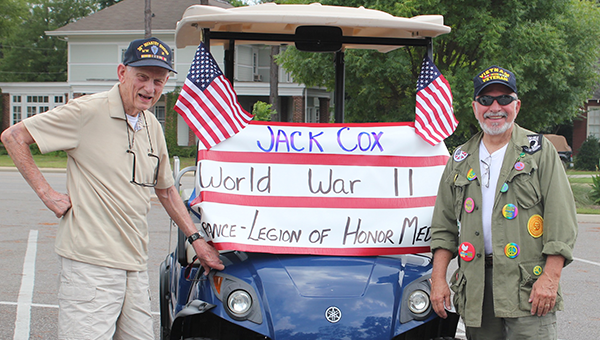Are we outraged because he is rich?
Published 12:36 am Saturday, December 14, 2013
“Affluenza” was added to the urban dictionary in 2004. It made its way into the common vernacular this week with media debate of its use as a defense in the case of a Texas teen who, while driving drunk, killed four people.
The teen, 16-year-old Ethan Couch, and his friends stole alcohol from a Walmart, consumed it, and he proceeded to drive.
Three of the people struck and killed were helping a fourth, who had a flat tire. Three hours after the crash, the teen’s blood alcohol level was three times the legal limit.
Two people riding in the bed of his pickup were severely injured. One is no longer able to move or talk; the other suffered internal injuries and broken bones.
Couch’s defense team painted him as a victim of the aforementioned affluenza, the product of wealthy, privileged parents who never set limits for their son.
A judge sentenced him to 10 years’ probation and ordered him to substance abuse treatment. She said she would not release Ethan to his parents, but would work to find the teen a long-term treatment facility. Early reports were that his parents would pay for the treatment, likely in California, expected to cost a half million.
At first blush, my reaction was, like that of the news commentator, outrage. How could a person walk away with seemingly no punishment in the deaths of four people.
But an excellent question posed by a CNN guest made me think more. He asked, are we enraged because the juvenile offender gets another chance, or because he is rich?
For me, the anger has several layers. First, I believe the law should be fairly applied, to rich and poor. Many people are punished by the criminal justice system for things their parents never taught them was wrong. Witness a kid growing up in the ghetto, where drug use and sales are the norm.
Further, we have seen far too many parents with kids who are in trouble for issues related to drugs or alcohol struggle to find those kids a spot in a treatment program. People from poor and middle class backgrounds have to wait for a bed at free treatment programs which usually require daily labor for the right to participate.
Those people, it seems, are learning that there are consequences for their actions.
If Ethan Couch has an ounce of compassion in him, a wild night of his 16-year-old life will likely haunt him forever.
If his “defense” is valid, it should also work for people of lesser means, who also have not been properly taught by their parents.
If the judge is serious, she should choose a reasonably-priced or free treatment center for Ethan, and let his parents save their money for the civil claims being filed against them. They are going to need it.



